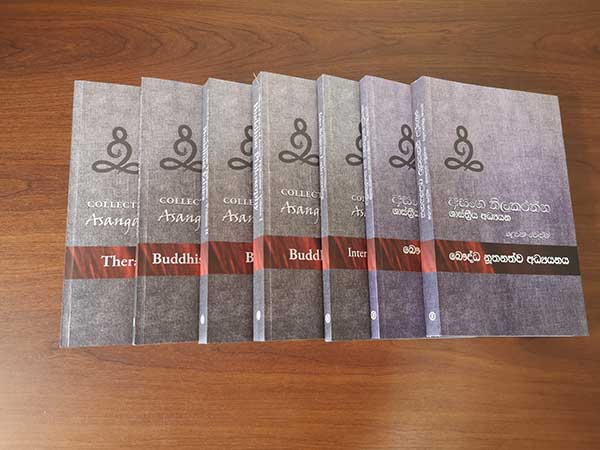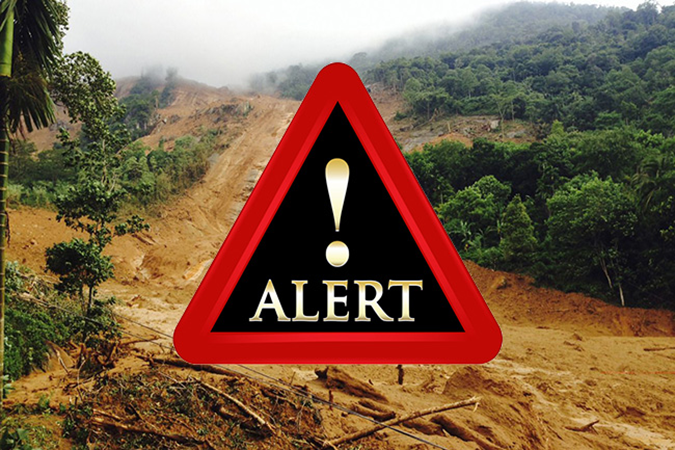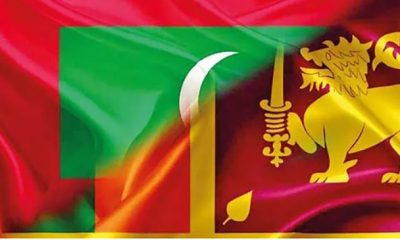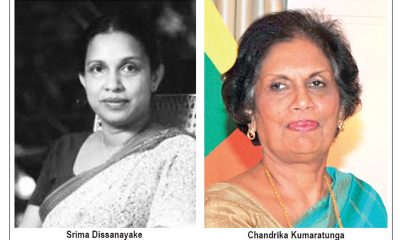News
A dhamma daana of a different kind

Four-decades of writings by Prof. Asanga Tilakaratne, eminent scholar of Buddhist Studies and the one time Head of the Department of Buddhist Studies, University of Colombo, featured in eight volumes will be launched on August 27 at the BMICH.
by Randima Attygalle
Cataloguing the work of a reputed scholar spanning over four decades, elicited from numerous sources, both local and foreign, into a collection of eight meticulously compiled journals is a colossal task. In a labour of love, this has been realized by a team of Buddhist and Pali scholars guided by Ven. (Prof) Raluwe Padmasiri Thera in a manner true to the words of the Buddha, “If anything is worth doing, do it with all your heart.”
The eight volumes, five in English and three in Sinhala are a tribute to the eminent scholar Prof. Asanga Tilakaratne credited not only for his fine literature of a wide canvas of Buddhism related themes but also for his work as a teacher moulding a generation of young scholars in Buddhist and Pali studies. He has drawn inspiration from celebrated modern interpreters of Buddhism such as K.N. Jayatilleke and David J. Kalupahana in his scholarly pursuits.
The writings of Prof. Tilakaratne, the founder Head of the Department of Buddhist Studies, University of Colombo, are classified under several key themes including Buddhist Philosophy, Buddhist Ethics, Theravada Studies, Buddhism and Modernity, Inter-religious understanding and Buddhist Literature and Culture. The soon-to-be-launched collection will bring the painstakingly researched papers of the reputed scholar closer to the student, researcher and the intellectual reader.
The idea of compiling Prof. Tilakaratne’s academic papers was first mooted as a casual discussion among a group of scholars at the occasion of his retirement from the University of Colombo in 2018 as the Senior Chair Professor of Pali and Buddhist Studies. “Initially neither they nor I had any inkling that the project will run into many volumes! All papers compiled under eight different banners are what I have written for four decades. Although I have been teaching full time for the last 30 years, I did not stop my research and writing because teaching and writing go together. If the teacher is not delivering new themes and fresh raw materials, he is not doing justice to his students,” says Prof. Tilakaratne.
He applauds the editorial board of ‘emerging Buddhist scholars’ comprising his friends, junior colleagues and students for embarking on this uphill task. The panel which represents the four-fold group in Buddhist society (Bhikku-Bhikkuni, Upasaka-Upasika) truly represents the future of Buddhist Studies in the country, says Tilakaratne who notes that they have the “potential to take contemporary Theravada Buddhist scholarship to the world”.

Prof. AsangaTilakaratne
Comprehensive scholarly introductions by renowned Buddhist scholars- both local and foreign add to the substance of the volumes. Ven. Tirikunamale Ananda Mahanayaka Thera, Jayadeva Uyangoda- Emeritus Professor of Political Science, University of Colombo and G. A. Somaratne, Professor of Buddhist Studies, Centre for Buddhism, University of Hong Kong, are credited for the introductions of the three Sinhala publications. Scholars like Dr. Surakkulame Pemaratana Thera, emerging monastic Buddhist scholar who holds a doctorate from Pittsburg University and works at Pennsylvania University, USA, Anne M. Blackburn of Cornell, Damien Keown of Goldsmiths College, University of London, Rupert Gethin, President of Pali Text Society, London and Professor of Bristol University, UK, and Abraham Velez of Kentucky University, USA complements the English volumes.
The demand for Buddhist books continues to escalate but this, however, needs to have a mechanism of checks and balances, remarks Prof. Tilakaratne. “With the demand, there is now a tendency to publish practically anything in the name of Buddhism for this ready market,” says the author who urges publishers to have the manuscripts reviwed by a qualified panel of scholars. In the USA and the UK the average time between handing over the manuscript to the publisher and its publication is two years or more.
“But in a situation where a good number of books published in this country are author’s own publications, with no guarantee of accuracy or value whatsoever, means that anyone can publish virtually anything provided they have resources. there must be a broader mechanism in place in order to assure that what is given to readers is of good quality.”
In this backdrop, the collection authored and edited by qualified professionals bear the intellectual responsibility for the content. The panel of editors had also taken considerable efforts to adhere to sound academic traditions.
The two volumes ‘Inter-religious understanding’ and ‘Buddhism and Modernity’ featured in the collection are particularly topical in the contemporary setting bidding the Buddhist intelligentsia of Sri Lanka to create a dialogue on these topics, notably on religious understanding so that communal reconciliation becomes a reality. “History reflects that Buddhism has faced challenges with courage and survived. Since 1815 the challenges posed by modernity in a Sri Lankan setting have been diverse and serious, so much so at a certain point, during this early period of the island’s British colonial history even some local scholars seemed to have thought that Buddhism will definitely lose the battle. Some papers in the collection discuss issues related to this aspect of modernism,” explains Prof. Tilakaratne.
What is significant in the collection is that it addresses issues related to how Buddhism as an organization adapted to new situations and adopted certain aspects of modernity while preserving the core of its philosophy. One of the key aspects of the author’s academic writings, which is reflected even in his formative years of academic and intellectual development is his effort to interpret the teachings of Buddha in the context of problems arising from modern scientific and technological developments. His first book Minis Getalu Pilibanda Bauddha Vigrahaya (Buddhist Analysis of Human Problems), published in 1979, belongs to this genre and won the State Literary award for that year.
Inter-religious understanding deliberates on theoretical and doctrinal issues as well as issues arising from historical and social contexts. “Doctrinally and philosophically the challenge for any religion is to accommodate other religions while preserving one’s own uniqueness. Where multiplicity of religion is a fact in one’s daily life, stressful situations among religious followers is inevitable. The challenge for each religion is to find out its own resources to cope with such situations. In my writings I have tried to develop a position which to my understanding is fair by Buddhism as well as other religions,” observes the author.
While lauding everyone who supported to make this initiative a reality, Prof. Tilakaratne makes special mention of Ven. Bellanwila Dhammaratana Nayaka Thera, Chief incumbent of Bellanwila Rajamaha Viharaya and the publisher of the collection- Sarasavi Publishers.
Latest News
GovPay Concludes 2025 with Rs. 2 Billion in digital transactions, marking a major milestone in Sri Lanka’s digital transformation

GovPay, Sri Lanka’s Government Digital Payment Platform concluded the year 2025 by surpassing Rs. 2 billion in total digital transaction value, marking a major milestone in the country’s digital transformation journey. Notably, GovPay doubled its collections from Rs. 1 billion to Rs. 2 billion in just 45 days, reflecting rapid adoption, growing public trust, and strong institutional uptake across the public sector.
Since its official launch on 07 February 2025, GovPay has processed over 69,000 digital transactions, enabling payments for 3,372 government services across 215 government institutions. This accelerated growth underscores the increasing reliance on secure, convenient, and transparent digital payment mechanisms by both citizens and government institutions.
Implemented under the strategic leadership of the Ministry of Digital Economy, the Information Communication Technology Agency of Sri Lanka (ICTA) in collaboration with LankaPay, GovPay has emerged as a key pillar of Sri Lanka’s national digital public infrastructure. The platform plays a critical role in advancing financial inclusion, improving service efficiency, and strengthening transparency in public service delivery.
A key milestone in 2025 was the launch of the Online Traffic Fine Payment System through GovPay on 10 April 2025. Since its introduction, the system has facilitated over 50,000 digital traffic fine payments, generating more than Rs. 66 million in revenue. The service is currently operational across the Western, Southern, Northern, North Western, and North Central Provinces, including the Southern, Katunayake, and Central Expressways. While the island wide rollout planned for December 2025 was postponed due to adverse weather conditions and disaster-related challenges, ICTA, in coordination with the Sri Lanka Police and with the support of LankaPay, has agreed to complete the nationwide rollout in January 2026, with a landmark launch in the Central Province.
GovPay has continued to expand its reach across local authorities, including Divisional Secretariats, Municipal Councils, Urban Councils, and Pradeshiya Sabhas, significantly enhancing access to government services in citizens’ day-to-day activities. The platform has enabled digital transactions for all local authorities in the Northern Province and all Divisional Secretariats in the Southern Province, with a national target to digitize all local authorities by 2026.
Institutions such as Kotelawala Defence University, Sri Lanka Police, the Department of Technical Education and Training, the University of Moratuwa, and the Sri Lanka Atomic Energy Board emerged as some of the highest contributors to GovPay in 2025. Strong adoption by the education sector in particular highlights the readiness of younger generations to embrace digital transformation and demonstrates the platform’s scalability and reliability.
Beyond routine government services, GovPay also supported national disaster response efforts. Since 30 November 2025, the platform facilitated digital donations to the Rebuild Sri Lanka Disaster Relief Fund, collecting almost Rs. 14 million across 909 transactions, including contributions from Sri Lankans living abroad, ensuring transparency and ease of contribution during a national emergency.
As GovPay continues to grow, ICTA is working on revamping www.govpay.lk with enhanced features to support institutional onboarding, service management, and reporting capabilities. With Rs. 2 billion in digital collections achieved within its first year of operation and the last Rs. 1 billion reached in just 45 days, GovPay stands as a strong testament to the impact of coordinated digital transformation, reinforcing Sri Lanka’s vision of achieving a USD 15 billion digital economy by 2030.
News
Swift restoration of Religious, Cultural and Archaeological sites damaged by the disaster

A discussion on the restoration of religious, cultural and archaeological sites affected by Cyclone Ditwah was held on Thursday (18) afternoon at the Presidential Secretariat under the patronage of the Minister of Buddhasasana, Religious and Cultural Affairs, Dr. Hiniduma Sunil Senevi, with the participation of the Most Venerable Mahanayaka Theras of the three Chapters and other religious leaders.
Addressing the meeting, the Minister stated that more than one thousand religious, cultural and archaeological sites across the country had sustained damage due to the disaster. He assured that prompt measures would be taken to commence restoration work and reinstate these sites to their original condition without delay.
The Minister further stated that all restoration work is expected to be carried out while preserving the historical and cultural authenticity of the sites, under the guidance of the Most Venerable Maha Sangha and other religious leaders, with the active participation of all relevant stakeholders.
The Secretary to the Ministry of Buddhasasana, Religious and Cultural Affairs, Prince Senadheera, noted that arrangements are currently underway to mobilize the required human resources and financial assistance for the restoration process. He also stated that steps have been initiated to recruit the necessary technical officers on a contractual basis to conduct technical assessments of the affected sites. In addition, plans are in place to involve officials of the Ministry as well as officers of its affiliated institutions in carrying out these restoration activities.
The Secretary to the Ministry further stated that generous financial contributions from donors are currently being received to the fund established under the Ministry of Buddhasasana, Religious and Cultural Affairs for the reconstruction of damaged religious places of worship.
The meeting also considered continuing the gathering as an interfaith committee to oversee the restoration activities. Accordingly, it was agreed that the progress of construction work would be regularly reported to the committee and that the committee would be entrusted with mobilizing support for the fund in a transparent manner, including assistance from foreign donors, international organizations, Buddhist organizations and other religious institutions.
It was noted that the Central Cultural Fund has identified eight sites that were severely damaged by the disaster and are difficult to restore through conventional construction methods, requiring the specialized expertise of archaeologists, mural conservation specialists, and architects. The cost of restoring these sites has been estimated at over Rs. 500 million.
It was further decided that the committee would meet once a month to review and discuss the progress of these restoration activities.
Religious leaders commended the Government’s intervention in providing relief to those affected by the disaster and in restoring livelihoods, expressing appreciation for the effective management of the response. They also praised the Government’s prompt action in initiating restoration work at damaged religious sites.
The event was attended by several eminent religious leaders, including the Registrar of the Asgiri Maha Viharaya, Venerable Dr. Medagama Dhammananda Nayaka Thero; the Registrar General of the Amarapura Siri Saddhammawansa Maha Nikaya, Venerable Balapitiye Siri Seevali Nayaka Thero; the General Secretary of the Sri Lanka Ramanna Maha Nikaya, Venerable Attangane Sasanarathana Nayaka Thero; the Chief Secretary of the All-Ceylon Shasanarakshaka Board, Venerable Professor Mugunuwela Anuruddha Nayaka Thero; and the Tri-Nikaya Maha Sangha, led by the Chairman of the National Bhikkhu Front, Venerable Wakamulle Uditha Thero.
Also in attendance were Hindu religious leaders, including Venerable Swami Aksharatmananda, representatives of the Catholic Church and the National Christian Council, including Father Alec Roy Samantha Fernando, All-Ceylon Muslim religious leaders, including the General Secretary of the Jamiatul Ulama Organization, Ash-Sheikh Arkam Nooramith, Deputy Minister of Religious and Cultural Affairs, Mohamed Muneer , as well as senior officials of the Ministry of Buddhasasana, Religious and Cultural Affairs and relevant line institutions.
Latest News
Landslide early warnings issued to the Districts of Badulla, Kandy, Kurunegala, Matale and Nuwara Eliya extended

The landslide early warning center of the National Building Research Organisation [NBRO] has extended the landslide early warnings issued to the Districts of Badulla, Kandy, Kurunegala, Matale and Nuwara Eliya until 08:00 AM on Saturday [20th].
LEVEL III RED landslide early warnings have been issued to the Divisional Secretaries Divisions and surrounding areas of Minipe, Ududumbara, Doluwa and Medadumbara in the Kandy district, and Mathurata, Walapane, Hanguranketha and Nildandahinna in the Nuwara Eliya district.
LEVEL II AMBER landslide early warnings have been issued to the Divisional Secretaries Divisions and surrounding areas of Badulla, Lunugala, Passara and Hali_Ela in the Badulla district, Akurana, Pathadumbara, Udunuwara, Gangawata Korale, Pasbage Korale, Harispattuwa, Thumpane, Panvila, Ganga Ihala Korale, Udapalatha, Yatinuwara, Poojapitiya, Kundasale, Deltota, Pathahewaheta and Hatharaliyadda in the Kandy district, Rideegama in the Kurunegala district, Laggala Pallegama, Wilgamuwa, Yatawatta, Ambanganga Korale, Naula, Rattota, Pallepola, Ukuwela and Matale in the Matale district, and Nuwara Eliya in the Nuwara Eliya district.
LEVEL I YELLOW landslide early warnings have been issued to the Divisional Secretaries Divisions and surrounding areas of Bandarawela, Uva Paranagama, Haldummulla, Kandeketiya, Soranathota, Ella, Welimada, Haputhale and Meegahakivula in the Badulla district, Alawwa, Polgahawela, Mallawapitiya and Mawathagama in the Kurunegala district, and Thalawakele, Norwood, Ambagamuwa Korale, Kothmale West and Kothmale East in the Nuwara Eliya district.
-

 Features6 days ago
Features6 days agoWhy Sri Lanka Still Has No Doppler Radar – and Who Should Be Held Accountable
-

 Midweek Review3 days ago
Midweek Review3 days agoHow massive Akuregoda defence complex was built with proceeds from sale of Galle Face land to Shangri-La
-

 News2 days ago
News2 days agoPakistan hands over 200 tonnes of humanitarian aid to Lanka
-

 News2 days ago
News2 days agoPope fires broadside: ‘The Holy See won’t be a silent bystander to the grave disparities, injustices, and fundamental human rights violations’
-

 Latest News6 days ago
Latest News6 days agoLandslide early warnings in force in the Districts of Badulla, Kandy, Kegalle, Kurunegala, Matale, Nuwara Eliya and Ratnapura
-

 News3 days ago
News3 days agoBurnt elephant dies after delayed rescue; activists demand arrests
-

 News7 days ago
News7 days agoGovt. okays postgraduate medical training for Maldivian medical officers and dental surgeons
-

 Features6 days ago
Features6 days agoSrima Dissanayake runs for president and I get sidelined in the UNP













